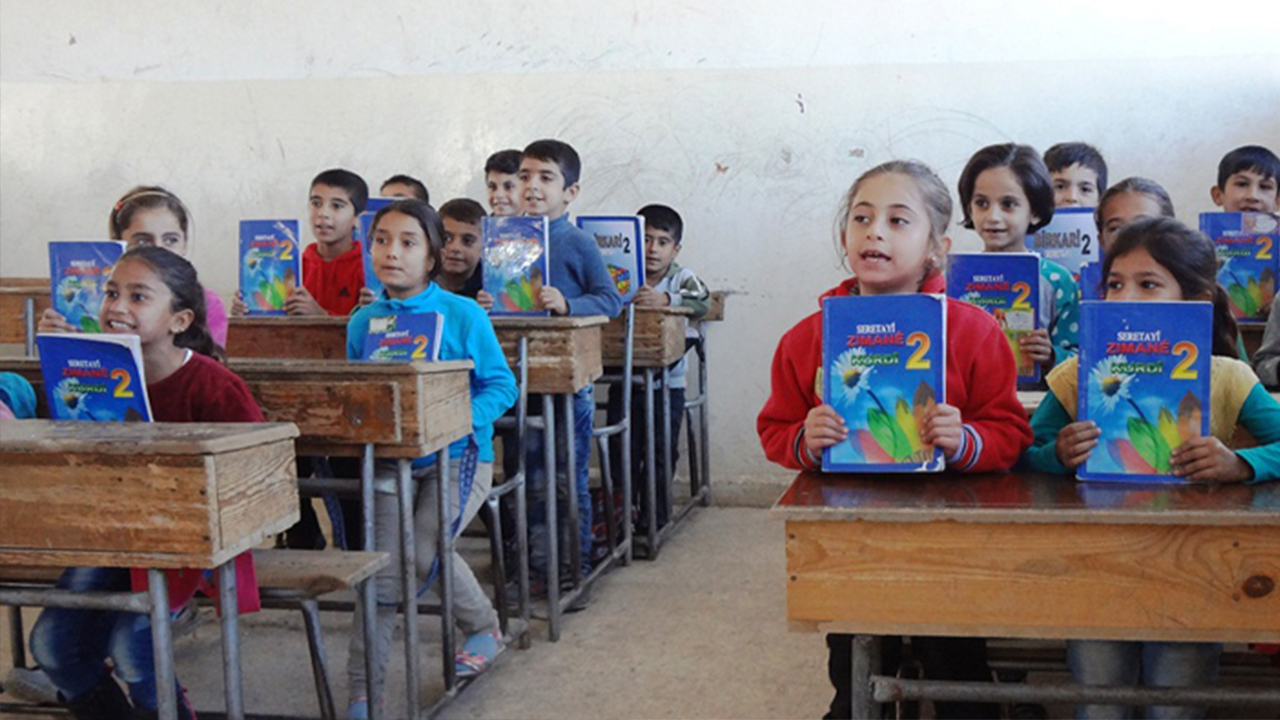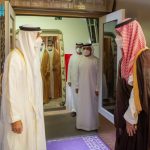February 21 was declared as World Mother Language Day by UNESCO on November 17, 1999, to promote awareness of linguistic and cultural diversity and multilingualism.
According to experts, education in your mother language is among the most important aspects of proper education and has to be treated as a right. However, Kurds in North-East Syria (Rojava) gained that right only after the Rojava Revolution, pioneered by the Kurds themselves.
Since 2016, Zaningeha Rojava (Rojava University) has been developing a higher education alternative to the State’s universities under the Ba’ath regime in Syria. Before the revolution, the only way for young people to follow higher education studies was to travel beyond Rojava to join one of these State universities, for example, in Latakia or Damas.
Menan Cafer, a professor of Kurdish Language and Literature at Rojava University, explains the situation of the Kurdish language from a historical perspective.
“In the Lausanne treaty, based in Switzerland, the founders of the Turkish State, accompanied by some leading Kurdish regional leaders, persuaded the delegations in the peace conference that the Kurds do not demand any particular nation-state but would rather stay and live with Turks. Yet, it was actually a conspiracy and betrayal against fundamental rights of Kurdish people.”
He continues:
“After French colonialism ended and they left Syria, which was named the Syria Republic up to 1945, some political parties got power and became the government. There were even some Kurds in these parties, and even 4 or 5 of them were in the government itself. But just after the Ba’athists seized power, they started acting in chauvinistic ways. They had forbidden all usage of the Kurdish language and cultural activities. As a result, whenever even a Kurdish word has been spoken in the streets or public spaces, it was recognized as a shameful habit and a crime against Arabic superiority.”
But things changed after the Rojava Revolution, according to Cafer.
“When the Kurds carried out the 19th June Revolution in Syria’s Kurdistan, it first became one of culture and linguistic revolution for Kurdish tongue.”
Darwin Dari, on the other hand, the co-chair of the Department of Literature and Social Sciences at Rojava University, tells about how they started the project in Rojava University.
“We started with a Kurdish curriculum in primary schools just after the revolution. And then periodically the Kurdish education got fame and respect in the public that later on the assemblies decided that all the disciplines could be educated in Kurdish. And it was the same with the other sister languages of Asyriacs and Arabics that they could be educated with their mother tongues.”
He describes the revolution as a baby.
“The revolution in linguistics was that much difficult as if a baby was about to get birth. It was that much existential and important issue. And as a result, a new way of life was created thanks to the Kurdish language revolution.”
He also tells about the role of the revolution in the development of the Kurdish Language and Kurdish identity.
“Before the 19th July Revolution, the Kurdish language was deteriorating toward extinction. Me, myself, as an experience of my teenage years in 1987, we were getting some Kurdish courses as illegal and underground activities. I mean that if any language is not involved with educational systems, it is always fated to become extinct.”
Source:MedyaNews
***Show us some LOVE by sharing it!***



